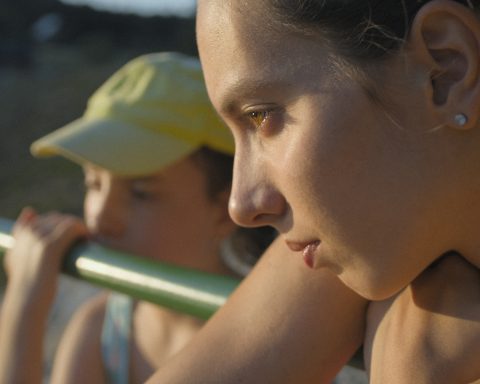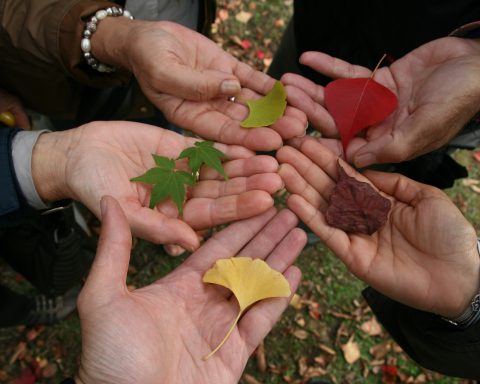The Japanese have given an appealingly quirky twist to the pop culture icon of the underdog who gets into boxing. The anti-heroine – and unlikely boxer – in 100 Yen Love (2014) is one of the bravest characters I’ve seen in urban-jungle type movies. Besides overcoming sexism in the sport, she’s had to get out of her own deep, seemingly hopeless rut.

The opening movie just shown at this year’s Filmkunstmesse stars Sakura Andô as Ichiko. The 32-year-old quit university, lives with her parents in a nondescript urban neighborhood, refuses to help her mother at the bento shop, and spends her days in pajamas and disheveled hair. She may be suffering from depression. A favorite pastime of hers seems to be playing a boxing video game with her nephew, who just moved back into her parents’ place with his mom, her sister.
But her sister’s return causes problems and animosity, and an aggressive episode prompts their mother to kick Ichiko out of the house. But for all her laziness – her sister calls her a “slob” – Ichiko is very stubborn and strong-willed.
Leaving home with practically just the shirt on her back (and a dirty one at that), Ichiko manages to land a job at the 100 yen shop (equivalent to the dollar or euro store) she often shops at herself. She also finds an apartment to live on her own. The shop ends up being central to the plot, as the title suggests; and defining of certain kinds of love the protagonist encounters. You even get used to its incessant little song.
She has no work experience and no experience dealing with men. All of a sudden, she has to handle a job and a “love” triangle all at the same time.
Ichiko meets “Banana Man” (Hirofumi Arai) and is immediately taken with him. She’s observed him in the nearby boxing school, and he’s seen her looking in too, and remembers her. The employees at the 100 yen shop call him “Banana Man” because he always buys bananas – energy for boxing, perhaps? But the name may have a double meaning.
And then there’s the dirty old man from the store. He’s a horrible person and we don’t get to find out quite what made him like that. Loneliness, perhaps? But nothing justifies his actions. With him the anger inside Ichiko bubbles stronger – and then, just when she thinks she’s finally finding some sort of happiness, “Banana Man” disappoints her.
But instead of going back to her parents’ and her depressive bubble, Ichiko channels her anger into boxing, at the school where “Banana Man” used to practice. She wants to learn to defend herself and finds a confidence she didn’t know she had.
The more she boxes, the more you can see the change in her personality and, of course, her looks. Her going out in pajama pants resists almost up until the end, however.
Ichiko’s parents and sister come to watch her boxing, and you can see they’re impressed by how much she’s changed, without having to say much. Her sister’s face says it all, in one of the most poignant moments I found in the movie. Actually, to me the movie’s highlights consist of little nuggets of intense drama and comedy too good for me to reveal.
Ichiko is proof that acts of courage in the face of gloomy adversity don’t have to be grandiose to count. Her newfound strength and confidence will affect her nephew and even “Banana Man,” who will probably pay it forward, too. As little people in an urban jungle, odd are that’s all we can really hope.
She reminds me a bit of the public servant in another really good Japanese movie, the classic Ikiru from Akira Kurosawa. He shows such courage in the face of adversity (a terminal diagnosis in his case), and generosity in his final acts in his community.
Directed by Masaharu Take, 100 Yen Love was Japan’s selection for the 2015 Oscars, but was not nominated. The film (and especially its main character) was well-received in Japan and won several important awards. The Filmkunstmesse folks brought it over because they thought it might interest German audiences, and wanted to test it in Leipzig. If the general applause at the end was any indication, the film passed the test.
[spacer height=”20px”]

The Filmkunstmesse continues until Friday, 23 Sept. For the full list of films playing in Leipzig theaters for the fest / fair, visit their program. Don’t forget to filter movies with “Öffentlich,” for the ones that are open to the general public. Others are for film industry guests only.









